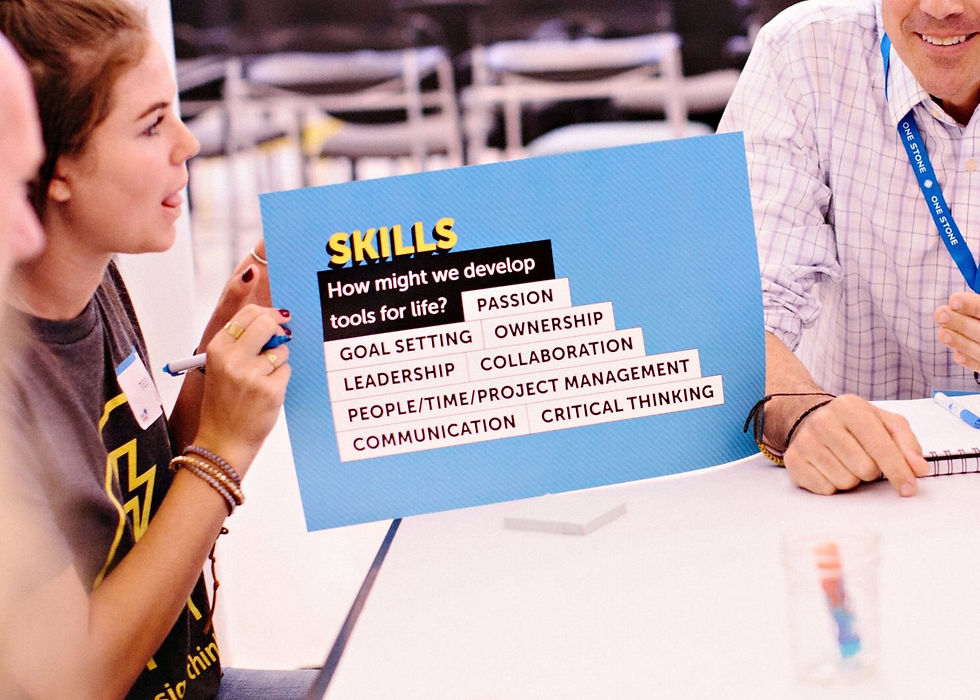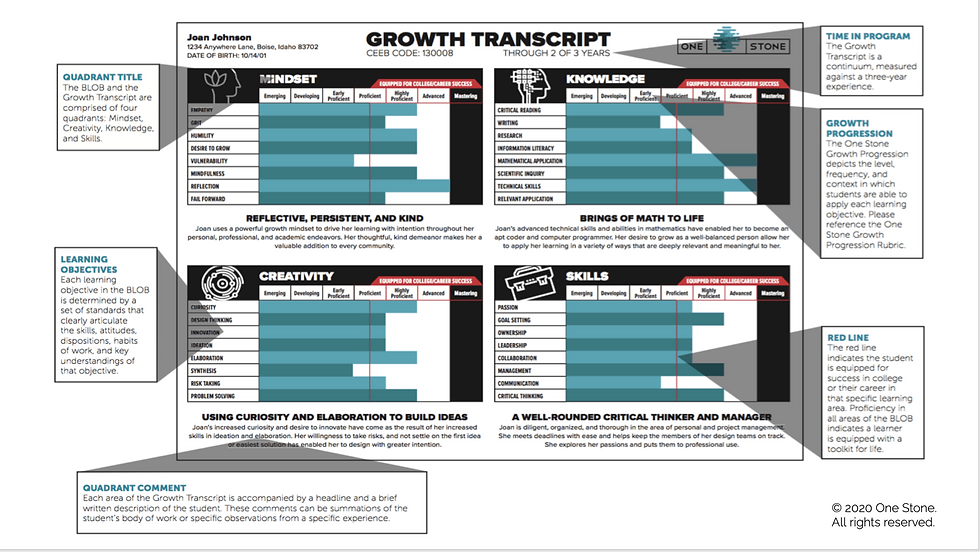
Homeschool high school guide
When we first considered homeschooling, I fought it every step of the way. We had three kids who experienced public school, charter school, private school, and eventually, homeschooling. I had so many misconceptions—I worried that I wouldn’t be "good enough" as their teacher, that they would fall behind, and, of course, I had the standard fear that "homeschool students are weird and unsocialized." But what we found was the exact opposite. Our children excelled, discovered their passions, and today, they are thriving in completely different fields.
One is earning her doctorate in Child Psychology at the top of her class, another graduated in architecture and now works for a prestigious firm, and our youngest is graduating high school as a dual-enrolled student in welding with multiple job offers already on the table. Their successes proved that a non-traditional path doesn't limit opportunities—it expands them.
Although the landscape of education is constantly evolving with more school choice options, please know that your child can go to college, receive scholarships, and even outcompete traditionally schooled students in university admissions, trades, or entrepreneurship. No matter which path they choose, a well-planned homeschooling experience can set them up for success.
This homeschool high school guide is designed to help you navigate that journey. Whether your student is college-bound, entering the skilled trades, or pursuing entrepreneurship, we’ll provide the tools and insights to ensure they graduate ready for the next phase of their life.
Note: College admissions requirements and links change frequently. This guide was written in March 2025. If you are reading this at a later date, please verify updated information from relevant sources.
Step 1: Core Skills & Life Skills for Every Path
Regardless of the direction your student takes, there are fundamental skills that all young adults should master before graduation. The following are suggestions and ideas to help customize a learning path that aligns with your student’s unique goals and interests.
Academic Core: Customized for Each Path
The traditional academic subjects are important, but they should be tailored based on a student’s career trajectory. Below are core areas that can be adapted for each major pathway: College, Skilled Trades, and Entrepreneurship.
For College-Bound Students:
English & Communication (4 years) – Advanced writing, literary analysis, public speaking, and debate
Math (3-4 years) – Algebra, Geometry, Trigonometry, Statistics, Pre-Calculus or Calculus
Science (3-4 years) – Biology, Chemistry, Physics, Environmental Science
Social Studies (3 years) – U.S. History, World History, Government, Economics
Electives – Foreign language, psychology, arts, and technology
For Skilled Trades & Apprenticeships:
English & Communication (2-3 years) – Technical writing, verbal communication, workplace documentation
Math (2-3 years) – Algebra, Geometry, Practical Business Math, Measurements & Conversions
Science (2-3 years) – Applied Physics, Environmental Science, Engineering Principles, Mechanics
Social Studies (2 years) – U.S. Government & Civic Laws, Workplace Ethics, Labor Laws
Electives – Construction, HVAC, Plumbing, Electrical Work, Welding, OSHA Certifications
Practical Skills – Car maintenance (changing a tire, checking oil), home and business repairs, applying for jobs/internships, resume building

For Entrepreneurs & Future Business Owners:
English & Communication (3-4 years) – Persuasive writing, public speaking, business storytelling, copywriting
Math (3-4 years) – Business Math, Financial Literacy, Budgeting, Investing, Taxes, Loans & Interest Rates
Science (2-3 years) – Consumer Science, Sustainability, Product Development, Supply Chain Management
Social Studies (3 years) – U.S. Government, Business Law, Local & Global Economics, Intellectual Property & Contracts
Electives – Social media marketing, website development, graphic design, human resources, networking skills
Practical Skills – Branding, pitching ideas, networking, applying for funding, legal requirements for businesses, business plan development
This customized academic approach ensures students receive an education aligned with their career path while still covering foundational knowledge.

What skills do students need for the future?
Step 2: Choosing the Right Path
Each student’s journey is unique. Below are three paths with clear steps to prepare for each.
Path 1: College-Bound Students
What They Need to Succeed:
Strong academic foundation
Extracurricular activities, volunteer and leadership roles
Standardized test scores (if required)
A well-organized transcript (we’ll guide you how below)
Steps to Prepare:
Dual Enrollment – Enroll in college courses while in high school to earn credit.
Advanced Coursework – AP, CLEP, or honors courses help with college admissions.
SAT/ACT Consideration – Some schools are test-optional, but a high score can still be beneficial.
Build a Transcript – Options include a traditional transcript or a "Growth Transcript."
Common App & Homeschool-Friendly Colleges – Research requirements for homeschool applicants.
College Essays & Applications – Start early and highlight unique learning experiences.
Letters of Recommendation – Gather from mentors, coaches, and professionals.
How to Build a Transcript & Portfolio
Creating a strong transcript and portfolio can help students stand out when applying to colleges, apprenticeships, or launching a business.
Traditional Transcript
A traditional homeschool transcript should include:
Course titles, descriptions, and grades
GPA calculation (if applicable)
Dual enrollment or AP coursework
Extracurricular activities and volunteer work
Many homeschool organizations offer transcript templates, or parents can use platforms like HSLDA’s Transcript Service or FastTranscripts.com.
Growth Transcript
For students who have taken a project-based or unconventional learning path, a growth transcript highlights skills, projects, and independent studies rather than just grades. It can include:
Narrative descriptions of coursework and major projects
Evidence of problem-solving, creativity, and leadership
Certifications, online courses, and apprenticeships

Creating a Portfolio for Colleges, Employers, or Investors
A portfolio showcases a student's work and achievements. Depending on the student’s career path, it can include:
For College Admissions: Research papers, essays, independent study projects, extracurricular leadership roles, and a list of completed courses.
For Skilled Trades: Photos of completed projects, certifications, apprenticeship documentation, and references from mentors.
For Entrepreneurs: A business plan, marketing materials, product prototypes, social media presence, and pitch decks for investors.
Students can use platforms like Google Drive, a personal website, or LinkedIn to organize and present their portfolios professionally.
---
Perks of Dual Enrollment for Homeschoolers in Florida
1. Free College Tuition & Fees: Homeschool students are exempt from paying registration, tuition, and laboratory fees when enrolling in eligible dual enrollment courses at participating Florida colleges and universities.
2. Free Textbooks & Instructional Materials: Dual enrollment students receive textbooks and course materials free of charge, with costs covered by school districts or Florida College System institutions.
3. Early College Acceleration: Homeschoolers can earn college credits while fulfilling high school requirements, allowing them to graduate with an associate degree or significant college coursework completed.
4. Flexible Scheduling: Students can take dual enrollment courses during school hours, after school, and even during the summer term.
5. Career & Technical Education (CTE) Dual Enrollment: Students can pursue industry certifications and career certificates alongside high school coursework, preparing them for in-demand skilled trades.
6. Equal Course Weighting: Dual enrollment courses must be weighted the same as Advanced Placement (AP), International Baccalaureate (IB), and other accelerated programs in GPA calculations.
7. Guaranteed Transfer of Credits: Courses taken through Florida’s statewide course numbering system are guaranteed to transfer within the Florida College System and public universities.
8. No GPA Requirement for Initial Homeschool Enrollment: Unlike traditional students who need a 3.0 GPA for college dual enrollment, homeschoolers do not have a GPA requirement. Instead, they must demonstrate college readiness through PERT, SAT, or ACT scores.
9. Early Admission Option: Homeschoolers can participate in early admission programs, enrolling full-time in college for their senior year and earning high school and college credit simultaneously.
10. Home Education Articulation Agreements: Homeschool students can enter agreements directly with postsecondary institutions, ensuring they receive equal access to dual enrollment opportunities.
---
This approach ensures that homeschoolers receive an education tailored to their future goals while still developing well-rounded skills for life beyond high school. Let me know if you'd like further refinements!
College isn’t the only path for everyone, but if attending a university is your child’s dream, finances shouldn’t stand in the way. Did you know that thousands of scholarships go unclaimed every year? Homeschool students in many states can also enroll at age 14 for free as dual-enrolled students, and several colleges are now offering completely free tuition! Don’t miss out on these incredible fully funded opportunities for undergraduate and graduate studies in the USA! 🌟
Public Universities Florida Dual Enrollment
Tech schools
Public career and technical schools are administered by county school boards and are accredited by the Council on Occupational Education. Information provided by the Florida Department of Education, Division of Career and Adult Education. Simply search homeschool dual enrollment or admissions on their website.
BAY COUNTY Haney Technical Center Panama City (850) 747-5500
BRADFORD COUNTY North Florida Technical College Starke (904) 966-6764
BROWARD COUNTY Atlantic Technical College Coconut Creek (754) 321-5100
McFatter Technical College Davie (754) 321-5700
Sheridan Technical College Hollywood (754) 321-5400
CHARLOTTE COUNTY Charlotte Technical College Port Charlotte (941) 255-7500
CITRUS COUNTY Withlacoochee Technical College Inverness (352) 726-2430
COLLIER COUNTY Immokalee Technical College Immokalee (239) 377-9900
Lorenzo Walker Technical College Naples (239) 377-0900
ESCAMBIA COUNTY George Stone Technical Center Pensacola (850) 941-6200
FLAGLER COUNTY Flagler Technical College Palm Coast (386) 447-4345
GADSDEN COUNTY Gadsden Technical Institute Quincy (850) 875-8324
HERNANDO COUNTY Wilton Simpson Technical College Brooksville (352) 797-7018
HILLSBOROUGH COUNTY Aparicio-Levy Technical College Tampa (813) 740-4884
Brewster Technical College Tampa (813) 276-5448
Erwin Technical College Tampa (813) 769-5180
When you are ready to launch into college after Dual Enrollment, take a look at these universities and their fully funded scholarship programs for 2025:
1. University of North Carolina at Chapel Hill - Morehead-Cain Scholarship
2. University of Virginia - Jefferson Scholars Program
3. Emory University - Emory Scholars Program
4. University of Southern California - USC Trustee Scholarship
5. Vanderbilt University - Cornelius Vanderbilt Scholarship
6. Washington University in St. Louis - Ervin Scholars Program
7. University of Notre Dame - Stamps Scholars Program
8. Boston College - Gabelli Presidential Scholars Program
9. University of Miami - Stamps Scholars Program
10. University of Richmond - Richmond Scholars Program
Take the time to explore these links, research your options, and apply! Your future is within reach.

Comments